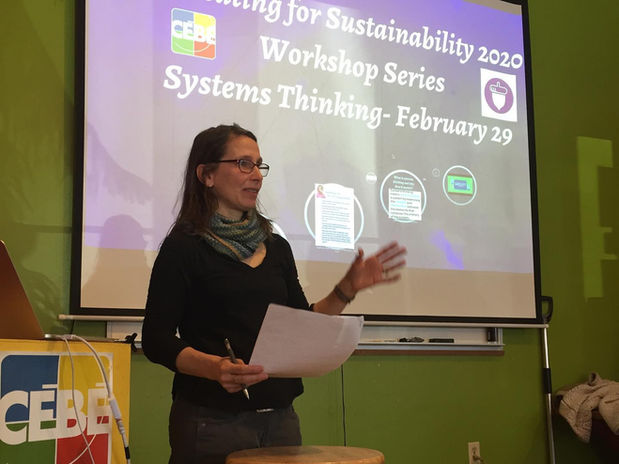
EDUCATION

Utilizing the lens of sustainability
Join the education Working Group!
Interested in Education? Our working group offers an opportunity to learn and contribute to projects alongside other community members. Visit our Events Page for upcoming meetings and feel free to attend one!
"A resilient community is educated, skilled, and interdependent. Sharing knowledge and skills is part of the foundation of any sustainable community."
Knowledge is one of our community's greatest assets. By offering professional development to educators to inform and empower them to teach about climate and teach outside, we have an exponentially larger impact than by teaching students ourselves. We work in coalition with other organizations to amplify our impact on policies to support students and educators. Learning and sharing the skills needed to thrive in a regenerative future is a lifelong project. We teach through skill share, convergences, workshops, film screenings, demonstrations, book lending, and mentorship.
Educating for Sustainability (EfS)
Professional Development for Educators Pre-K-Grade 12 and Pre-Service Teachers
Seal Rossignol, CEBE’s Education and Programming Director, has spent significant time in the last several years taking a deep dive into using the lens of sustainability in reshaping curriculum as well as helping educators in PK-Grade 6 transition learning to an outdoor context.
With a strong emphasis on place-based education and systems thinking, Seal works with teachers who want to engage students of all ages in practicing the skills that will create just, resilient, and sustainable communities.
What’s helpful for educators to know is that EfS isn’t another subject to teach- it is a lens through which an educator can view what is already being taught. The EfS lens can be used at any grade level and with any curriculum and with its focus on fostering sense of place, serves to familiarize and ground students in their communities- both natural and human constructed.
What does CEBE's Professional Development for educators look like?
Lens of Sustainability Thinking Partnerships
CEBE serves as a reflective partner to engage with teachers interested in reviewing curriculum and identifying potential connections between existing experiences and principles of sustainability. Additional ongoing support for individuals or teams of teachers to identify opportunities within their current curriculum for place-based, systems-thinking integration.
PK-Grade 6 Outdoor Learning Modeling and Professional Development
This works takes the shape of a “demonstrate-coach-support” model to help educators gain confidence and skills in managing students outside and aligning curriculum with outdoor learning opportunities. The focus is on collaboration with staff at varying grade levels to integrate outdoor learning routines and procedures while adapting to a place-based lens and instructional approach.
Climate Education Integration Professional Development (PK-Grade 12)
We will work with with individuals, small teams of teachers, or interdisciplinary teams, to weave the thread of climate education, including climate justice, throughout curriculum and across disciplines.
Additionally,
-
Guidance and support in developing Forest Fridays (full or half days spent outside all year round)
-
Guidance and support for integrating nature-based activities into your curriculum
Have an idea of your own related to these topics? Let us know!
Reach out to: Seal Rossignol for more information on content and fee structure.










